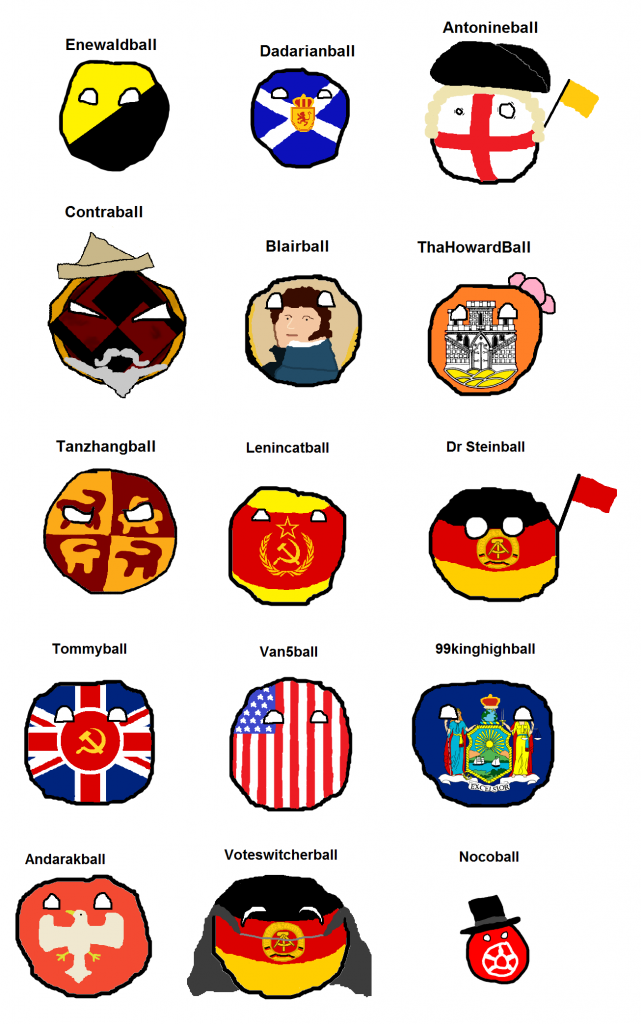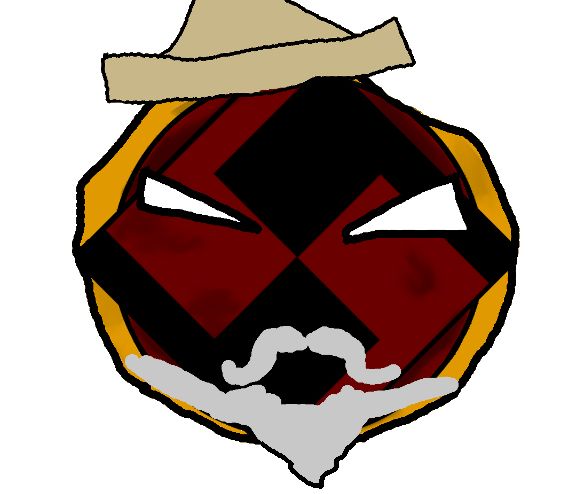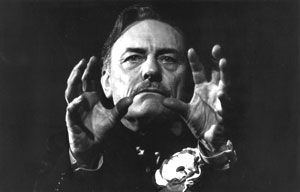The Election of 1969
After a decade of governments dominated by the Liberal Party of Jo Grimond, Britain stood at the end of the 1960s on the cusp of another defining moment in the country’s political history. For the first time since the early 1950s, arguably since the Korean Crisis of 1950, the front runners leading up to the election did not include the Liberal Party.

The results were just as stunning as many analysts had predicted. The Liberals lost nearly 10% of the popular vote and lost an extraordinary 191 seats, with at least two dozen MPs only securing re-election by narrow margins. Worse yet, with Labour registering a solid increase in its vote for the third consecutive election its losses from the break-up of the 1964 electoral pact were comparatively slight – allowing the party to finally reclaim the mantle of the leading force to the Left of the Conservative Party after a decade and a half in the Liberal Party’s shadows. The Conservative electoral machine benefitted tremendously from the confusion on the Left, with Labour not yet strong enough to compete for power itself and the Liberals falling apart the Tories made gains across the country capturing virtually all of the seats lost by the Liberals and most of those lost by Labour. As they captured only the second absolute majority since the War and the highest seat tally since 1935, the Conservatives also beat Labour’s record of 36.1% from 1949 and the Liberals’ record of 34.3% from 1958 in registering the highest share of the popular vote won by any party since the 1935 election with 38.2% of the electorate voting Conservative.

The 1969 election came at the dawn of the period of civil war in Northern Ireland euphemistically known as the ‘Troubles’. The general election of that year saw the UUP stranglehold over all of the province’s Westminster seats broken as left leaning Irish Nationalists groups were able to band together in order to take three seats. Perhaps more troublingly, in overwhelmingly Protestant North Antrim the evangelising Reverend Ian Paisley became the DUP’s first MP by defeating the incumbent UUP candidate. With close links to Loyalist paramilitaries and refusal to countenance any type of reform in Northern Ireland, this success of Paisley and his party risked escalating tensions in the Six Counties yet further by making a peaceful solution to the Northern Irish problem almost impossible.

The biggest losers of the 1969 election were the Liberals; a few Liberals were left as humiliated as Emlyn Hooson. Having held the rural Welsh seat of Montgomeryshire since 1958, Hooson saw a massive majority, admittedly inflated by the Lib-Lab Alliance of 1964, collapse as both Labour and the Conservatives made significant gains at his expense with the Tories capturing the seat and Labour almost beating the Liberals into third. Having been served as Home Secretary from 1958-63 and 1964-69, Hooson had been one of the key driving forces behind much of the Liberals’ social agenda including the legalisation of homosexuality and abortion, the abolition of capital punishment, and legislation aimed against discrimination. As one of Jo Grimond’s closest allies he had long been considered an ideal ‘continuity’ successor to the man who had delivered the Liberal Party back to government. His defeat in Montgomeryshire, seen by many as a vote of no confidence from a traditionally Liberal leaning constituency in Grimond himself, brought an end to Hooson’s ambitions towards the party leadership.

Around the country a familiar pattern emerged. Labour largely held on to the constituencies won in 1964, despite the break-up of the Lib-Lab Pact, with the Communists and Tories making marginal gains on them. However, ironically considering that the pact had been dissolved against Labour’s will by the Liberals, the Liberal Party suffered tremendously from competition from Labour losing almost 200 seats – mostly to the Conservatives. In the West Country seat of Tavistock the Liberals suffered the worst swing against in the entire country as a candidate who had won nearly 2/3s of the vote in 1964 lost his deposit - Tavistock’s new One Nationist Conservative MP, Michael Heseltine, entering parliament for the first time.

With the Conservatives securing a comfortable majority of 40, 48 including UUP MPs, 1969 gave Britain only its second majority government since the War and the first devoid of any direct or indirect Liberal Party involvement since Churchill’s wartime coalition was ushered in during 1940. The Conservatives had won total dominion over the House of Commons with their rivals on the Left divided amongst three parties of relatively robust strength.

Having unified all spectrum of opinion on the Right into a single challenge, if not as radical a challenge as many had hoped for, towards the post-war consensus Enoch Powell stormed into government just five years after leading the Conservatives into their worst electoral defeat since 1945. The new Prime Minister was a controversial figure in British politics, having first come to national influence as the leading force behind an insurgent right wing rebellion against the patrician leadership of Harold Macmillan and the One Nationist Conservatives in the early 1960s. Having coming a long way from his early 1960s radicalism, Powell had been able to retain the loyalty of his original Rightist constituency whilst expanding the Conservatives’ appeal back out to groups who had been alienated from the party in the middle of the decade.

Left to Right: Margaret Thatcher – Home Secretary, Alec Douglas-Home – Chancellor of the Exchequer and Edward Heath – Foreign Secretary
Powell’s cabinet reflected the delicately balanced alliances within the party. Securing her first ministerial position, the National Liberal Margaret Thatcher was made Home Secretary whilst the One Nationist Edward Heath became foreign secretary and the pliable, moderate; Traditionalist Alec Douglas-Home was granted the position of Chancellor of the Exchequer. It was a cabinet of that reflected many of the divisions within the Conservative Party, but played down the Hard Right origins of its leader – causing dissatisfaction amongst many of the figures who had supported Powell’s initial rise to power.
With his personal unpopularity dragging the Liberal vote down, the catastrophic loss of almost 200 MPs made Jo Grimond’s position at the head of the Liberal Party untenable. Having spent ten of his fourteen years as leader as Prime Minister since taking over the party leadership from Archibald Sinclair in 1955, Grimond had safely secured his place in history. Yet his legacy would have a divisive and confusing impact on the factional struggles that followed his retirement from the Liberal leadership just days after the 1969 General Election.

With Hooson losing his seat the two leading candidates who emerged to contest to leadership were the men who had entered the upper echelons of the cabinet following ‘Night of the Long Knives’ in 1967 – Roy Jenkins and Jeremy Thorpe. Jenkins came from the Orange wing of the party, but carried with him a more moderate political outlook than many of his fellow Social Democratic Liberals. Like Thorpe he idealised ‘Spirit of 1958’ and the reforms carried out by the Liberal governments of the 1960s. Unlike Thorpe he believed that Liberalism success in the late 1950s and early 1960s was based upon its acceptance of all progressive Centre and Centre-Left political trends under a single ‘broad party’ that made the Liberals attractive to a large variety of voters and capable of fair and reasoned debate within the party. He saw the decline of the Liberals in the late 1960s as directly related to Grimond’s attack on the broad party.
Thorpe, coming from the Yellow Liberal tradition, took a very different view of the past decade. He regarded the period from 1958 to 1969, one of continuous electoral decline, as one of the decline of the New Liberalism that had facilitated the Liberal Party’s rise during the 1950s. The party was seen to have become too broad as the Liberals eagerly accepted new arrivals during the 1950s and early 1960s – leading to internal conflicts that crippled the party’s ability to agree upon a radical and attractive manifesto and created enemies within the party that threatened to weaken its structure, Yorkshire’s Liberal and Labour Party being a prime example, and demanded Grimond’s unpopularly authoritarian response. For Thorpe, the party had to return to its distinctive Social Liberal identity and the radicalism of 1958 if it was to ever return to power. In the leadership contest with Jenkins he scored as easy victory with Jenkins’ support isolated to Oranges and a few scattered non-conformist Yellows.











